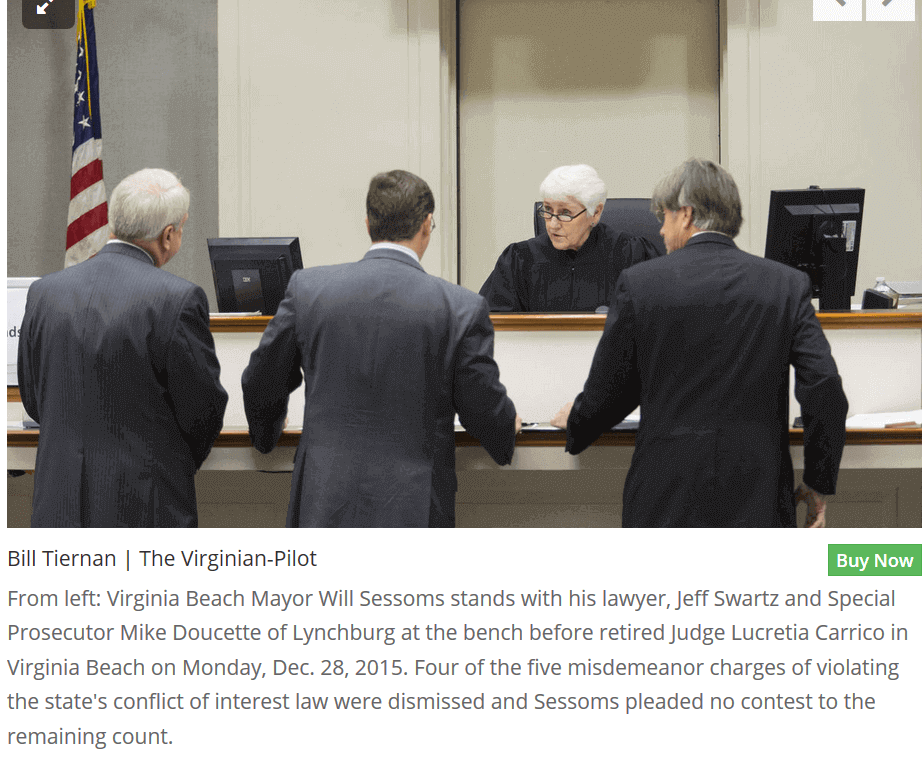Virginian-Pilot, The (Norfolk, VA)
Author: MARC DAVIS, STAFF WRITER
What would you do if you suddenly found $8 million in your stock fund?
That happened recently to John and Cindy Elliott of Colonial Place. In February, a computer glitch turned 0.895 shares of an investment fund into 89,500. That’s 100,000 times its real value.
What happened next is a matter of dispute.
According to a lawsuit, the Elliotts took their new money and invested it in stocks and mutual funds. Within two months, the Elliotts had lost $400,000 and the investment company had figured out its mistake.
Now, First Union Securities Inc. wants its money back – and then some.
The securities firm, owned by the same parent company that owns First Union Bank, sued the Elliotts last week in Norfolk Circuit Court, accusing the couple of fraud.
First Union wants $2.2 million. That’s $400,000 for the lost money, plus $1.2 million in triple damages – tripled because of the alleged fraud – plus $600,000 in punitive damages.
First Union says the Elliotts knew the money wasn’t theirs, yet they misled the securities firm for weeks. John Elliott talked twice a day with a First Union broker to direct the fund’s management, the lawsuit says.
First Union declined to comment Friday. The company said it did not know how the computer error happened. “That is a question we are looking at very carefully,” said First Union spokesman Tony Matera.
And who is responsible for the error – the Elliotts or the broker? “That is an issue that has to be looked at,” Matera said.
The Elliotts insist they did nothing wrong. They blame First Union, but they declined to discuss the matter in any detail Friday. They said their attorneys advised them not to talk.
The lawyers, Michael Goodove and Franklin Swartz, also declined to comment.
According to the lawsuit, here’s what happened:
John Elliott, a building contractor, opened a brokerage account at First Union in July 1999 with $10,000. It doubled in value in several months.
First Union then asked the Elliotts to transfer more money into the account, and John Elliott did. He transferred an account from Merrill Lynch to First Union in February.
After the transfer, it appeared that the Elliotts owned 89,500 shares of the Nuveen Tax Exempt Unit Investment Trust, worth about $8 million. Actually, the Elliotts owned 0.895 shares.
John Elliott then told First Union to redeem about $2.5 million of the Nuveen shares and invest it in stocks and mutual funds.
On April 4, a First Union broker noticed that the Elliotts’ account had a negative balance. First Union’s Norfolk branch asked Elliott if he really owned 89,500 shares of Nuveen, and Elliott said yes.
Finally, First Union realized the mistake. Elliott told First Union to sell his portfolio, but it didn’t cover the negative balance.
The account is still in the red for $400,000, and First Union must pay that to Nuveen, the lawsuit says.
First Union says the Elliotts intentionally hid the fact that they did not own the Nuveen shares. The lawsuit accuses the Elliotts of fraud and conspiracy.
The Elliotts have three weeks to file a reply. No hearing date is set.
Reach Marc Davis at 446-2303 or mdavis(AT)pilotonline.com
Caption:
Graphic
What the bank says: First Union says the Elliotts knew the $8
million wasn’t theirs, yet they misled the securities firm for
weeks.
What the couple says: They insist they did nothing wrong. They blame
First Union, but declined to discuss the matter.
Copyright (c) 2000 The Virginian-Pilot
Record Number: 0005200291



